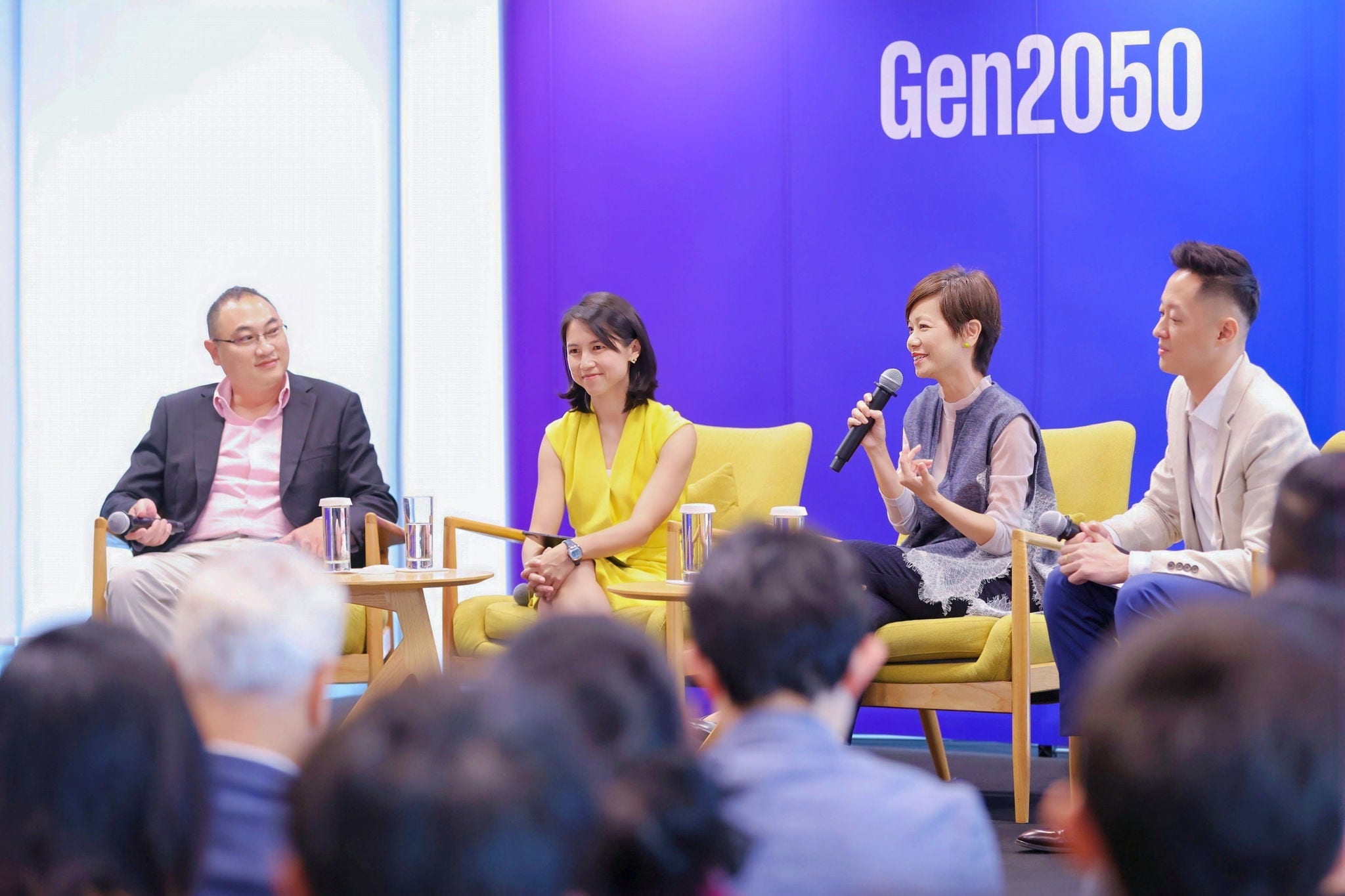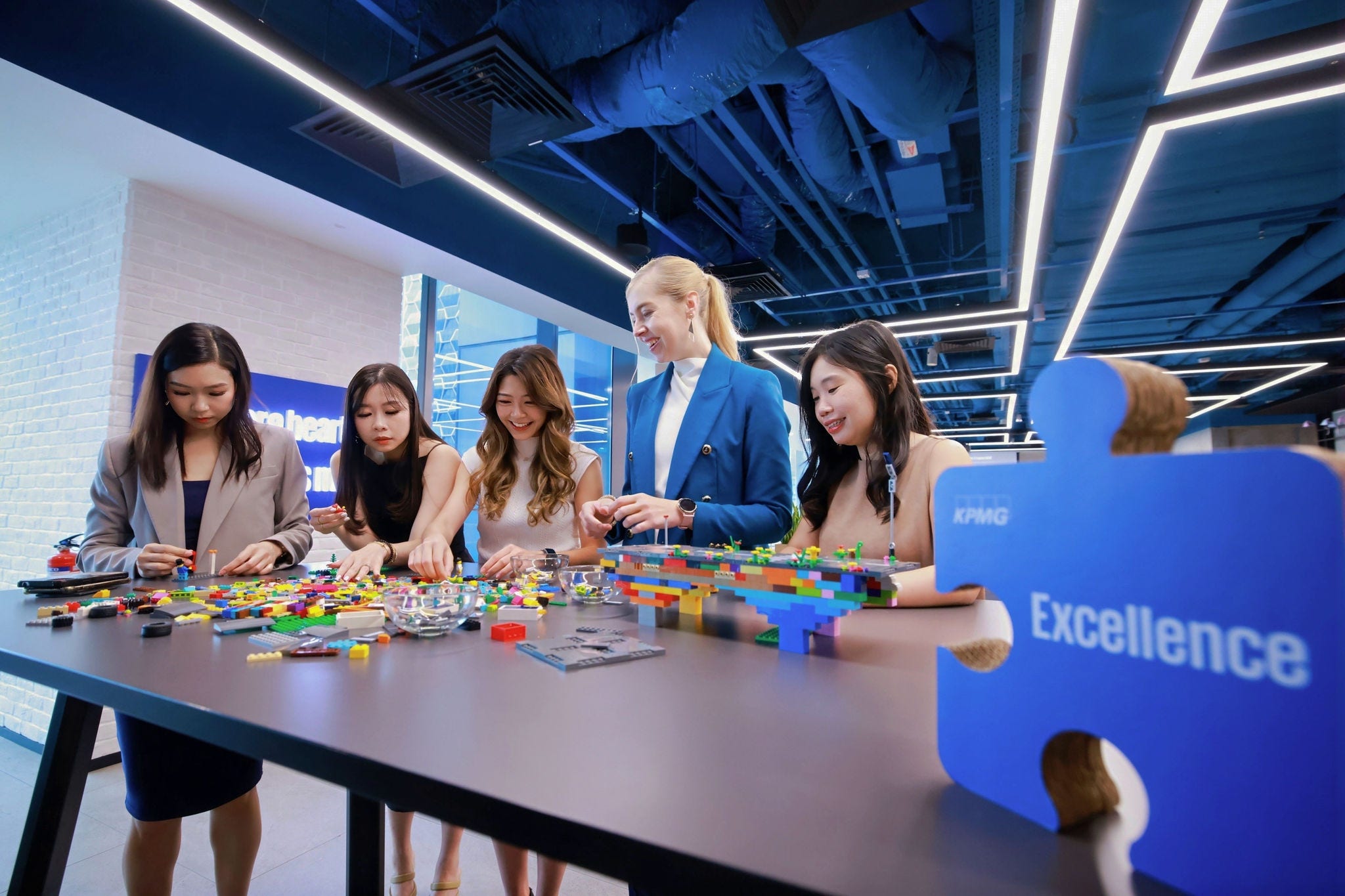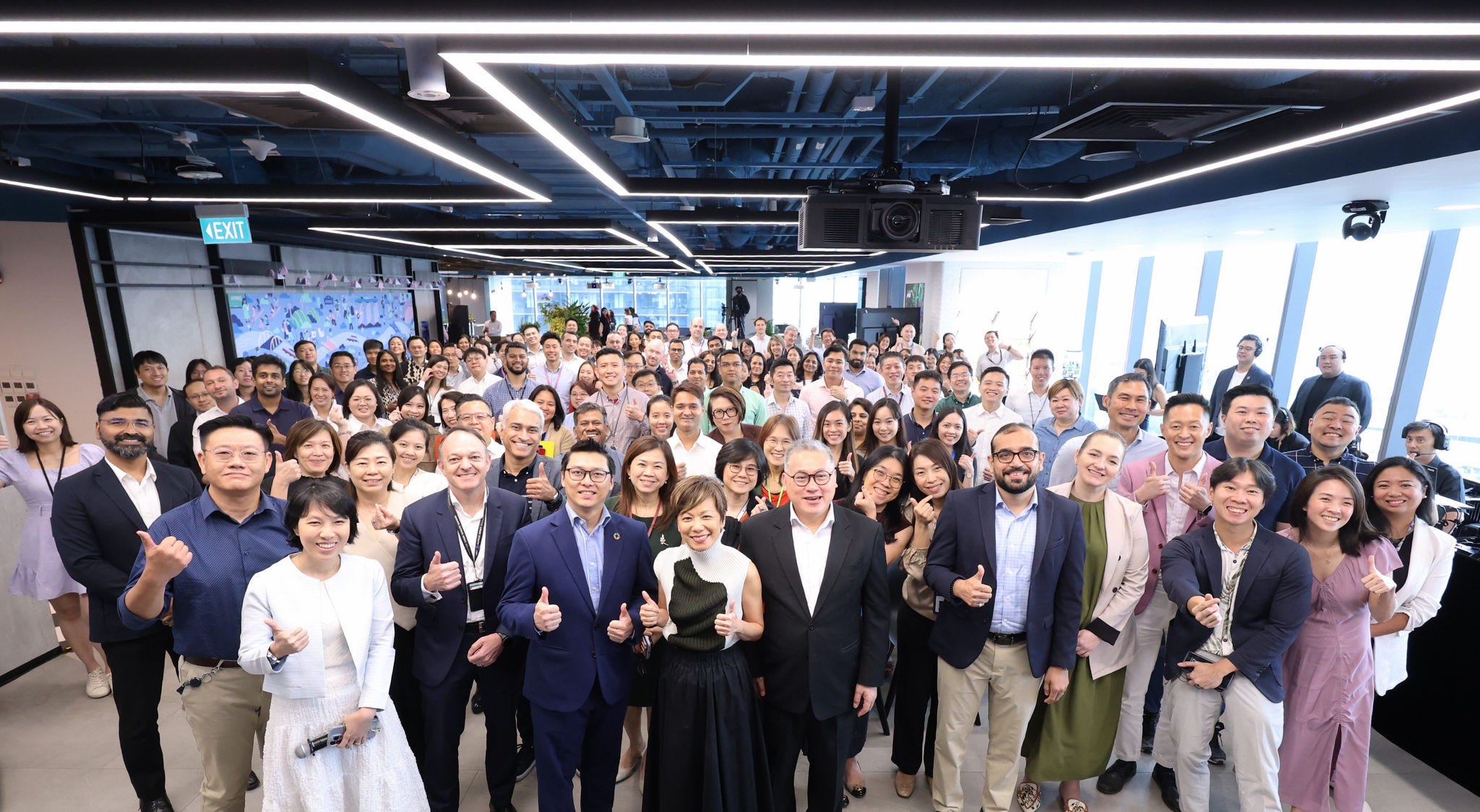This article was first published in
The Business Times on 6 Aug 2025.
ARCHITECTS of the future, with the global connectivity and talent that businesses need to navigate a complex world. That’s how Lee Sze Yeng, managing partner, KPMG in Singapore, envisions the professional services firm as it approaches its 85th anniversary in Singapore next year. Singapore’s own 60-year transformation into a global financial hub speaks powerfully of how talent can help to overcome resource constraints. But today’s business landscape – where sustainability, artificial intelligence and social impact have become imperatives – will demand even more diverse and multi-disciplinary expertise.
Investing in tomorrow’s global talent
When Lee joined KPMG three decades ago, the Singapore office employed around 500 people. Today, she leads a workforce of about 4,000 employees in what has become one of KPMG’s most dynamic operations.
KPMG in Singapore exudes the same youthful energy that characterises Singapore itself – still very much a young nation at 60. Lee believes this demographic advantage allows KPMG to harness the passion and energy of youths, using their drive to shape the future with insight and creativity.
This is why nurturing talent remains at the core of the firm’s work, a top priority for her that’s summed up in KPMG’s “Be in Front” philosophy and backed by the firm’s commitment to provide its professionals with the expertise needed to thrive in today’s world.
KPMG in Singapore is grooming what Lee calls an “innovative mindset”, where professionals and advisers move beyond routine tasks such as number-crunching to blend design thinking and strategic insight to solve complex business challenges.
“Our talent model equips professionals to interpret ‘in-between’ spaces, identify opportunities and define new paths to success,” says Lee, naming structured training programmes and cross-border knowledge sharing platforms as some of the ways the firm trains its workforce.
Having a global perspective is also key to developing unique perspectives on complex issues. From her experiences working in Australia and the UK, Lee has witnessed first-hand how business practices are adapted across cultures and different business models, teaching her the importance of agility and the need to challenge conventional thinking.
For example, the firm offers its professionals international mobility opportunities across KPMG’s global network to help them broaden insights and build bridges across local and global teams. Internally, KPMG has also introduced programmes aimed at cultivating a multi-disciplinary workforce, with one such initiative – the Explore programme – allowing participants to rotate across audit, tax, and advisory functions over two years before choosing a specialisation.

Lee Sze Yeng, Managing Partner, KPMG in Singapore, shares with employees her vision and plans for the firm.
“It’s a step toward building a profession that not only meets the needs of businesses but also thrives on global collaboration and diverse perspectives,” says Lee.
At its core, the firm’s approach to talent is Lee’s vision of building a “Happy and Healthy Organisation” (H2O) – KPMG’s articulation of a people-centric workplace that inspires innovation, growth and collaboration.
Turning sustainability from compliance to competitive advantage
Having the right talent is especially critical as KPMG helps clients tackle one of business’s most complex challenges: sustainability.
Consider sustainable finance alone. The Asean region is projected to need up to S$5 trillion in sustainable financing over the next decade, resulting in more than 50,000 financial services professionals seeing new finance-related job roles added to their critical work functions.
This pressing need has prompted key stakeholders to begin laying the groundwork for change. KPMG was commissioned by the Monetary Authority of Singapore and the Institute of Banking and Finance, supported by Workforce Singapore, to develop a Sustainable Finance Jobs Transformation Map. The goal was to create a roadmap for the skills financial sector professionals would need to embed sustainability into critical functions, from decarbonisation pathways to enterprise-level finance decisions.
KPMG is starting early to ensure that the firm, and by extension the industry, has the right talent needed to tackle challenges in sustainability. It has partnered with the Association of Chartered Certified Accountants on an ESG Learning Programme, which delivers specialised skills in sustainability reporting, ethical finance and climate risk management to accountants and non-accountants alike, with tracks for both emerging talent and senior leaders.
“Sustainability, to me, is about so much more than protecting the planet,” says Lee. “It’s about creating a world where businesses consider not only their environmental impact but also their role in fostering stronger, more inclusive communities.”
And professional services firms like KPMG have a responsibility to change traditional views of how sustainability is understood by businesses, particularly by boards and leadership. These, Lee says, are instrumental in driving alignment between fiduciary responsibilities and long-term societal impact.
For example, businesses should see the increasing regulations around sustainability as an opportunity to innovate and take a leading role in the sustainability shift, rather than just another compliance checkbox to tick off, says Lee. In 2024, the Singapore authorities announced mandatory climate-related disclosures for both listed and large non-listed companies as part of the Republic’s move to help companies ride the green transition.
“It’s not just about compliance or regulation; it’s about reimagining business as a force for good, one that prioritises innovation, inclusivity and responsibility at every level,” she adds.
Recognising that investors and other key stakeholders are increasingly scrutinising how companies embed social and environmental considerations into their core strategies, KPMG has taken proactive steps to lead in this space.
In October 2024, KPMG co-developed an ESG Playbook for Charities with the Ministry of Culture, Community and Youth for more than 2,300 charities and Institutions of Public Character in Singapore to embed sustainability into their operations –turning ESG principles into practical action.
In June 2025, the firm also collaborated with the National Youth Council and the Institute of Public Relations of Singapore to launch the Gen2050 youth action programme – an initiative that aims to reach over 1,000 youths through its dual-track approach.
With a pitch challenge – to build skills in social entrepreneurship and stakeholder management – and large-scale dialogues on emerging societal priorities, the programme’s platforms allow youth to forge connections, turn ideas into actions, and drive change.
“By supporting ideas and initiatives with mentorship and funding, we want to cultivate a generation of bold leaders capa-ble of addressing pressing societal challenges and creating tangible, lasting impact,” Lee says.

Lee Sze Yeng, Managing Partner, KPMG in Singapore, sharing her views on how sustainability can be turned into a competitive advantage. She was part of a panel session at the launch of the Gen2050 youth action programme.

Nurturing talent is one of the top priorities for KPMG, which aims to cultivate a generation of leaders able to tackle complex issues.
Technology as innovation multiplier
This same forward-looking mindset is also reflected in how KPMG approaches emerging technologies – enabling businesses to think beyond immediate challenges and build long-term impact.
This is especially important as the world enters the “Intelligent Age”, where rapid developments in disruptive technology are likely to become the norm.
Lee believes KPMG’s role is not just to educate businesses on technology adoption, but to help them think about how to seamlessly synergise humans’ and machines’ work for more effective results. And the shift towards agentic AI with its autonomous decision-making features will make it even more crucial to ensure that professionals are the “value-add”.
She says: “Tools are just one piece of the puzzle. The key is applying them with an innovative mindset that embraces adaptability and iterative problem-solving. What sets KPMG apart is the way we seamlessly integrate advanced technologies with human-centric principles. Technology is not a substitute of expertise – it’s a multiplier.”
KPMG aims to walk the talk through its “Client Zero” mindset – piloting cutting-edge solutions in its own operations before offering them to clients, or co-creating these solutions with its partners.
For instance, KPMG Workbench, the firm’s multi-agent AI platform launched globally in June 2025, has a network of 50 AI agents and chatbots, with nearly a thousand more in development. These work alongside KPMG professionals to provide clients with faster, high-quality and trusted digital solutions across multiple sectors.
The platform includes built-in data sovereignty, ensuring clients maintain full control over how their data is stored and processed. This helps them manage diverse risk and governance needs and meet local and global regulatory requirements.
Taking this “Client-Zero” approach also allows KPMG to put these technologies and processes through stringent scrutiny, especially as responsible and ethical adoption of technologies begins to take centre stage.
Amid rapid developments, it is also important for businesses to be innovative in how they approach technology, such as by embedding environmental stewardship into their digital transformation strategies.
With contributions from the Infocomm Media Development Authority (IMDA) and the Singapore Computer Society’s Sustainable Tech Special Interest Group, KPMG developed in 2025 a strategic guide, Advancing Digital Sustainable Talent for the Future, to provide practical actions businesses can take to elevate workforce skills. These include adopting “Green by Design” principles – integrating sustainability from the start into systems development and operations.
These efforts reflect a broader mindset of adaptability, resilience, and bold thinking – qualities that are increasingly vital in today’s global landscape. In Singapore, this mindset has become a national imperative, as the country navigates the twin challenges of deglobalisation and rapid technological change while maintaining its edge as a hub for sustainable innovation.

KPMG’s top leadership outlines strategic priorities for innovation and growth at one of the firm’s townhalls.
Similarly, as the firm approaches its 85th anniversary next year, it is doubling down on open innovation, sustainability and collective action. As it charts its next chapter of growth, KPMG is setting benchmarks for industries that will thrive not just now but for generations to come.



